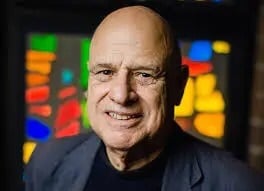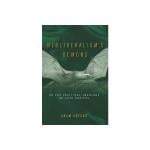Is There A “Christian Economic System?”
While re-reading Tony Campolo’s excellent book We Have Met the Enemy, and They Are Partly Right (originally titled Partly Right: Christianity Responds to Its Critics) I came across a portion “A Christian Response to Marx’s Economic Theories.” There Tony spelled out some principles of Christian economics. The most basic one is: “For Christians the primary motive in economic activities, as in all other activities, is love.” (167) Then Tony eight “biblical principles” that transcend socialism and capitalism—for a Christian economic system (pp. 175-176). I won’t repeat them here. They are, however, worth the price of the book (used).
As I have stated here several times before, I believe that, when it comes to proposing a Christian-based economic system, one cannot do better than look to philosopher John Rawls’s A Theory of Justice. It combines Christian concern for the poor with realism about human sinfulness. Before the kingdom of God appears, humans will always be selfish, competitive, and greedy. But Christians must consider how to develop an economic system that does not leave the poor behind.
”Charity is good, but justice is better.”
According to Rawls, a just economic system is based on a balance or combination of economic freedom and “maximizing the minimum” (the “maximin principle.”) Rawls’s theory of economic justice is what Christian ethicists call a “mediating principle.” (There are other names for such.) That is a principle that is absolutely secular and rational BUT is also Christian—a “bridge” between Christian perfection (how God wants things to be) and the fallen and broken world in which, especially since the Enlightenment, society requires reason and natural laws, as opposed to explicitly religious principles.
According to Rawls, who studied theology before becoming a philosopher, to develop a just social system we must imagine an “original situation” in which the members of society gather to decide on the rules governing the social system in which they will live. In the original situation, there must be a “veil of ignorance” over the minds of the members. They do not know what advantages and disadvantages they will each have. All they know is that in the society they are structuring before the veil is lifted there will be advantages and disadvantages. No absolute equality. Some will be smarter than others; some will be stronger than others, etc.
What economic system would people under the veil of ignorance agree on? Rawls right argues that all who are rational would agree on the greatest degree of freedom possible (liberalism) combined with a system in which, as the strong, the advantaged, increase in wealth, the weak would automatically be benefited. “Maximizing the minimum.” In other words, the weak COULD NOT be left behind in the dust, so to speak, insofar as they care to participate in the economy at all (or are disabled by age or whatever).
In other words, as the advantaged climb the “ladder” of success and become wealthy, there would be economic “strings” attached to the lower ones, the least advantaged, that pull them up. For example, free and good education funded by the wealthy—to give all an equal opportunity to thrive. Government programs to help the weak thrive such as job-training. Even government funded employment to help the weak “get on their feet” until they can enter the private sector. (The latter was illustrated by the New Deal’s “Civilian Conservation Corps.)
Rawls knew, as we all do, that just saying “love” will not work for a public and secular social structure in a modern, Western society governed by separation of church and state. In America today we cannot argue in the “naked public square” for love as the basic principle for social relationships. What we can do is discover mediating principles such as “maximizing the minimum” that approximate the Christian principle of love but are realistic about human nature.
Having studied Reinhold Niebuhr and John Rawls for years, I am convinced that IF Niebuhr had lived long enough to read A Theory of Justice he would have embraced it. It is a perfect example of “Christian Realism” applied to modern, Western, largely secular social and economic arrangements.
Rawls’s theory is directly contrary to neoliberalism which is absolutely contrary to Christian principles of love and justice. Christians MUST abandon and reject neoliberalism with its close association with Social Darwinism. Anyone who is committed to neoliberalism as an ideology (allow the weak to fend for themselves without government assistance and take away all economic limitations on the strong) cannot seriously call himself or herself a Christian.
Soon I will begin a series of posts here about theologian Adam Kotsko’s book Neoliberalism’s Demons. If you want to participate but have not yet ordered the book, order it now.
*Note: If you choose to comment, make sure your comment is relatively brief (no more than 100 words), on topic, addressed to me, civil and respectful (not hostile or argumentative), and devoid of pictures or links.*
















